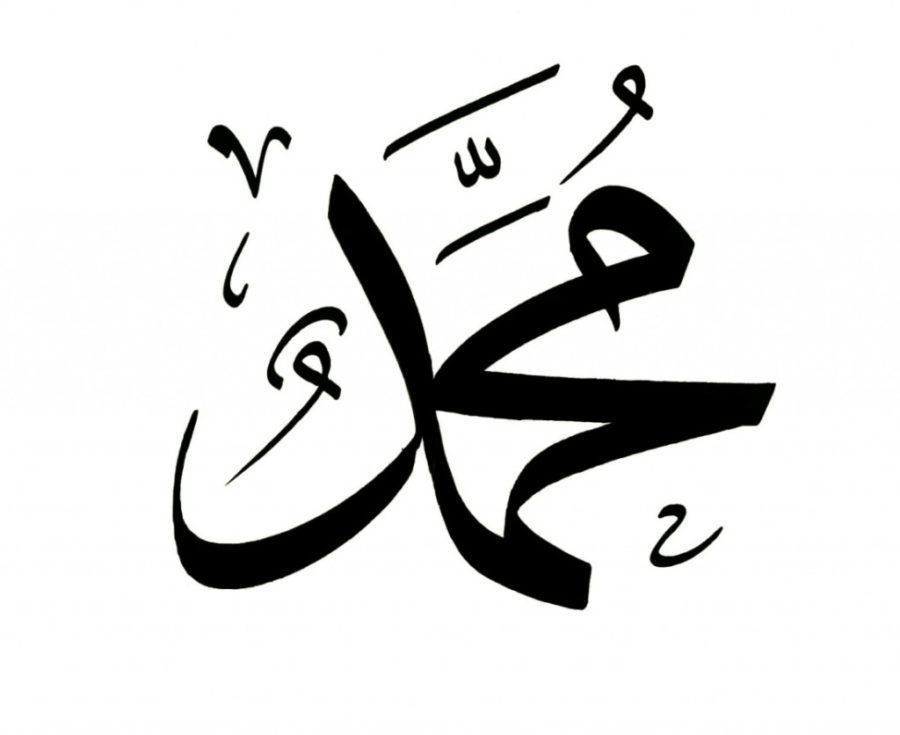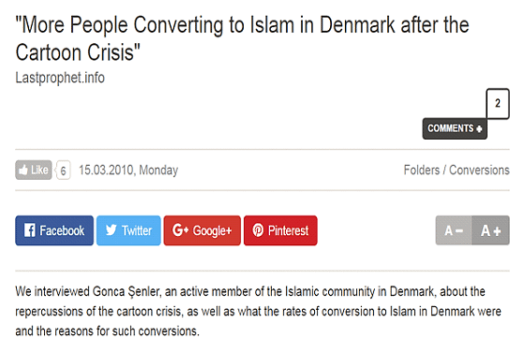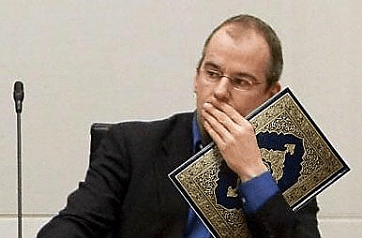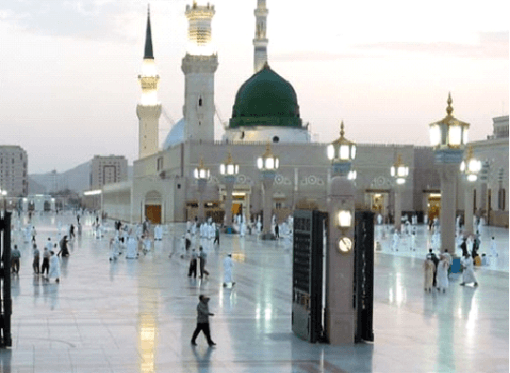
THE PROPHET MUHAMMAD
By Dr. Muhammad Solaiman
The Prophet Muhammad (peace be upon him, PBUH) is the seal (final) of the prophets of God because the Qur’an revealed to him has been well-preserved. Like all other prophets, Muhammad (PBUH) preached the Oneness of God and emphasized on His obedience.
It has been said that the Prophet Muhammad (PBUH) lived in the full light of history because the full details of his life, his sayings and teachings have been well-documented and preserved. However, it should be understood that Muslims believe that the Prophet Muhammad was only a man chosen by God and that he is not divine in any way. Muhammad (PBUH) was a prophet and a messenger of God who taught, preached and put God’s revelation into practice.
He was born in 570 CE in a mostly illiterate society in the city of Mecca in the Arabian Peninsula. His father died before his birth and his mother died when he was five or six years old. His grandfather, who was a respected man in the tribe of Quraysh, became his guardian. At the age of eight, his grandfather died and his uncle Abu Talib became his guardian.
He was a shepherd when he was young, and after adulthood, he joined his uncle in his trading business to Syria. When he was twenty-five years old, he was hired by a widow named Khadija to take her merchandise to Syria. The Prophet Muhammad (PBUH) then married Khadija, who was older than him. They lived together for almost a quarter of a century and she gave birth to all his children, except one.
The Prophet Muhammad (PBUH) used to go to an isolated cave known as Hira’ on one of the mountains of Mecca, for contemplation. In that cave in 610 CE, at the age of forty, the Prophet Muhammad (PBUH) received the first revelation of the Qur’an from God, through Angel Gabriel, and the revelation continued for twenty-two years until his death in 632 CE.
In the beginning, Islam was preached secretly by the Prophet to trusted individuals for two to three years. After that, he started calling people to Islam publicly. Once people embraced Islam, Muslims were faced with increasing hostility from the idol worshipers of Mecca. In spite of his Uncle Abu Talib’s protection, the Prophet and his followers were subjected to harassment and abuse.
Under all kinds of persecution, brutal torture and murder, the Prophet had to instruct a group of Muslims in 614 CE to escape to Ethiopia and seek the protection of its just Christian king. Quraysh then sent a delegation to the king with gifts to convince him to send the Muslims back to Mecca; however, he rejected their gifts and let the Muslims stay.
Qurayshi disbelievers, then, imposed economic and social sanctions on the Prophet, his followers, and his clan, which did not affect the determination of Muslims to keep and propagate their faith.
After the death of his wife Khadija and his uncle Abu Talib, the situation became worse. However, during the pilgrimage season in 622 CE, the Prophet Muhammad (PBUH) met a number of people from the city of Yathrib who converted to Islam and promised to protect him.
The Prophet Muhammad (PBUH) instructed his followers to emigrate individually or in small groups to Yathrib. On the night when Quraysh decided to kill Muhammad (PBUH), he secretly escaped from Mecca to the city of Yathrib, which was later called “Madina”.
The Prophet lived in Madina for about ten years. By the time of his death in 632 CE, Islam had become well-established as the religion of the Arabian Peninsula and had made inroads in neighboring regions.
Muhammad (PBUH) lived a humble life in the service of God and exemplified Islam as a way of life by showing what it means to be an ideal leader, friend, husband, teacher, ruler, warrior, judge, etc. Although his mission started in an illiterate society within a hundred years of the death of the prophet Muhammad (PBUH), the Islamic spread from Spain to China.
The wealth of the teachings, instructions, admonitions and guidance of the Prophet Muhammad (PBUH), regarding all aspects of life have been recorded within the rigorously authenticated statements (hadith) which have been meticulously recorded from direct sources of those who were in contact with him. The Prophet was walking under the sun. There are no dark corners or missing chains in his life. Everything in it is clear and transparent. We know everything about him. We know about him more than we know about our own fathers. What captures attention in the Prophet’s life is its superior clarity that shines all the time.
The love of God and the aspiration to be with Him was at the centre of the life of the Prophet Muhammad (PBUH). He saw the majesty of his Lord and, therefore, he never stopped praising Him.
He was spiritually longing to communicate with God. He started his day and ended it with extolling God’s praises, and he always praised God in between. On the other hand, the communion between the Prophet Muhammad (PBUH) and God was the core of his life, therefore, the five obligatory prayers (Salat) were the most profound worship in his life, which were spiritual stations that comforted him and renewed and enhanced his strength. He used to say to Bilal, one of his companions who used to give the call for the prayers (the Azan), “Bilal, give us the comfort of prayer.” He also used to do it in privacy at home, in the depth of the night throughout his life. This is, in fact, one of the proofs of his prophethood which could have never been put on by an impostor.
The Prophet Muhammad (PBUH) has inspired Muslims and taught them decency, integrity, sensitivity, self-restraint, patience, forgiveness and respect for others. He instructed us to do our work perfectly until the last moment of life. In addition, he taught us to love for others what we love for ourselves.
“None of you will believe until you love for your brother what you love for yourself” (Narrated by Al-Bukhari).
The Prophet Muhammad (PBUH), treated his most hostile enemies with clemency and forbearance. Owing to his humility, nobility, purity, decency, austerity, refinement and devotion, he deserves not only reverence but also our love.
No man in history has ever been so loved and thoroughly followed in all aspects of his life like Muhammad (PBUH). More than 1.6 billion Muslims from various races, ethnic groups, cultures and nationalities all over the globe know, love, adore and follow the Prophet Muhammad (PBUH). He remains present in their thoughts and alive in their hearts.
Those who attack the Prophet Muhammad do not know of him. If they did, they would respect, love and follow him. Let’s read this short story of Thumamah, who was one of the Muslim’s captives. To him, the Prophet was the person he hated most. The Prophet ordered him to be tied to a post in the mosque. When Thumamah saw what the Prophet did in his day and night, and saw how he treated the people around him, he concluded that he was a messenger of God. Having kept him in this position for a couple of days, the Prophet then (PBUH) ordered him to be released, leaving him free to decide what he wanted to do. Thumamah simply went away, took a bath and came back. He sat in front of the Prophet and said: “I bear witness that there is no deity other than God and that Muhammad is God’s messenger. By God, Muhammad, there was no face on earth I hated more than your face. Now your face is the one I love the most. There was no religion, I hated more than your religion. Now your religion is the one I love the most. There was no town I hated more than your town. Now it is the one I love the most.”
Interestingly, a similar recent example is demonstrated in the story of Arnoud van Doom. He is a former far-right politician of the Dutch Freedom Party, which shows stiff hostility towards Islam and the Prophet Mohammad (PBUH). Arnoud contributed in the production of ” Fitna”, the Dutch anti-prophet Muhammad film, in 2008.
In December 2012, after learning more about the religion of Islam and the Prophet Muhammad, to produce another anti-Islam film, Arnoud became spiritually inspired by Islam and announced his conversion to Islam. In 2014, his eldest son also converted to Islam after experiencing its marvelous effect on his father.
It is the duty of Muslims not to let those who humiliate the Prophet Muhammad draw them to revenge through violence which actually causes harm to innocent people and is negatively reflected on Islam and Muslims. Violence contradicts the core of the prophet’s message and contradicts with the spirit of Islam. The best way to translate our love to the Prophet Muhammad (PBUH) is by following him and applying his teachings in our daily lives. This would practically demonstrate the beauty of Islam and demonstrate to the whole world how the Prophet Muhammad, is a mercy to all mankind.
“And We have sent you (O Muhammad) as a mercy for the Worlds” (Qur’an, 21:107).

The attacks of some Western media on Islam has led to an increase in the number of converts to Islam.

Arnoud van Doom the distributor of anti-Islam film “Fitna” holding the Qur’an after his conversion to Islam.

The mosque of the Prophet Muhammad (PBUH) in Madina city, Saudi Arabia, where the prophet was buried.
Related links
Muhammad a blessing for mankind
The life of the prophet Muhammad
A day in the life of Muhammad
The characteristics of prophet Muhammed

